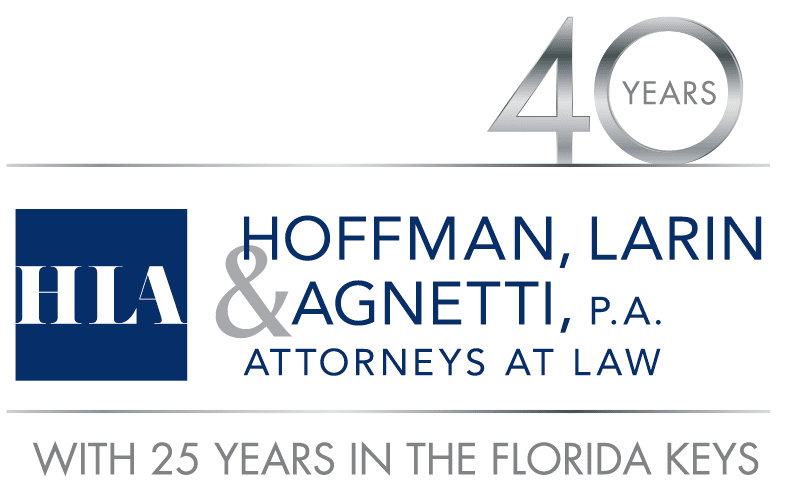Why HLA? We are the Bankruptcy Attorneys Often Recommended by Other Attorneys
What can I say about Michael Hoffman and his firm that hasn’t already been said! Michael Hoffman is the absolute best and I cannot thank him enough for literally giving me a fresh new start. I never thought I would ever be in bankruptcy but I suddenly found myself overwhelmed by debt in a case with complex circumstances. Mr. Hoffman’s vast knowledge and experience, his legal expertise, professional ethics, wise guidance and his extraordinary work; got me through a very difficult stressful process with resounding success. I greatly appreciate Mr. Hoffman’s honest advice, diligent effort, and patience. From the very beginning, Mr Hoffman fully explained the bankruptcy process and from the moment I first met with him and his Team, I was confident I had made the right decision in choosing Hoffman, Larin & Agnetti P.A. for my case.
NFeliz – April 2,2020
The Bankruptcy Petition
To begin a Chapter 7 bankruptcy, you, as the debtor, will file a petition (request) with the Bankruptcy Court asking it for protection under the bankruptcy law. The petition can be filed individually, or a married couple can file a joint petition.
Automatic Stay
As of the date the petition is filed, all of your assets come under the protection of the bankruptcy court. This means that creditors may not take any collection efforts against you unless an order is obtained from the bankruptcy court; this is referred to as an ‘automatic stay’. The automatic stay will afford you immediate relief from collection efforts by creditors.
Frozen Accounts
Most often, your individual bank accounts are not affected by filing a Chapter 7 bankruptcy; your bank accounts, whether checking or savings, will not be closed, or garnished by the bank. By virtue of the automatic stay, your bank accounts ordinarily cannot be frozen or attached by creditors.

However, if your bank or credit union account balances exceed the allowable exemption amount, (e.g., if you have exemptions up to $8,000 but your account has $15,000 in it) and you owe money to the bank (e.g., on a line of credit) the bank may notify you and the bankruptcy trustee (the person appointed by the court to handle your bankruptcy) that the account(s) is in “bankruptcy status” and the funds are frozen and then only payable pending direction from the bankruptcy trustee. This is a questionable practice and is currently used only by Wells Fargo Bank, Union Bank and its subsidiaries. The freezing of the account was allowed by the court in In re Young, 2010 WL 3965698 (Bankr. M.D. Fla. 2010) and is permitted by the bankruptcy courts in the Orlando, Florida area (Middle District of Florida). As a result, if you live in Orlando, your bank account may be frozen. As to the rest of Florida, the bankruptcy courts have so far not recognized freezing of bank accounts under the circumstances described above.
When a bank freezes an account after bankruptcy is filed, you will have to petition the bankruptcy trustee or file a motion with the court to unfreeze the account and have the funds released. Although the trustee or judge will eventually authorize “unfreezing” the accounts if no money is owed and/or if the money in the funds is within the exemption amounts, this process could take anywhere from a few days to a few weeks. It is important that you be aware of the potential risks that your accounts may be frozen for a period of time following the filing of their bankruptcy. The safest action may be to take the funds out of the accounts in the bank that is owed money and transfer it to another institution.
Schedules
When a Chapter 7 bankruptcy petition is filed, you are required to file a Statement of Financial Affairs and other schedules that describe your personal background, financial history and income. A detailed inventory of debts and assets will also be filed with the petition. Debts and liabilities are broken down by category. Certain debts, such as taxes, are referred to as ‘priority debts’ and may not be dischargeable. ‘Secured debts’ (debts for which the debtor has given security or collateral), such as automobile debts and home mortgages, must also be identified. ‘Unsecured debts’, such as credit card obligations, are those obligations for which the debtor has given no security or collateral. In addition to scheduling liabilities, the debtor will be required to schedule all assets that he/she owns, including real estate and personal property.
Florida Exemptions
In a Chapter 7 bankruptcy, you will lose “non-exempt” property and will be entitled to keep all ‘exempt property’. In Florida, it is not unusual for debtors to be able to exempt all of their property and therefore not lose any assets in a bankruptcy. Florida exempt property generally includes:
- The primary residence or homestead (except as to the mortgage lender)
- Social Security Benefits
- Civil Service Benefits
- Veteran’s Benefits
- Property held as tenancy by the entirety (in joint names by husband and wife) may be exempt against debts owed by only one spouse
- Life insurance
- Annuity contracts
- Pension and retirement savings
- Alimony
- Child support
- Motor vehicles to $1,000
- In certain cases, a “wildcard” exemption up to $8,000 of personal property for a married couple (if you don’t take the homestead exemption)
Experienced Bankruptcy Lawyers
As you can probably tell, the law surrounding bankruptcy in general, and frozen assets / bank accounts in particular, is extremely complex. Hiring an experienced attorney like those at Hoffman, Larin & Agnetti, P.A. is of the utmost importance in getting your assets unfrozen ASAP. If you’ve had assets frozen, call HLA for a free, no-obligation consultation today!


